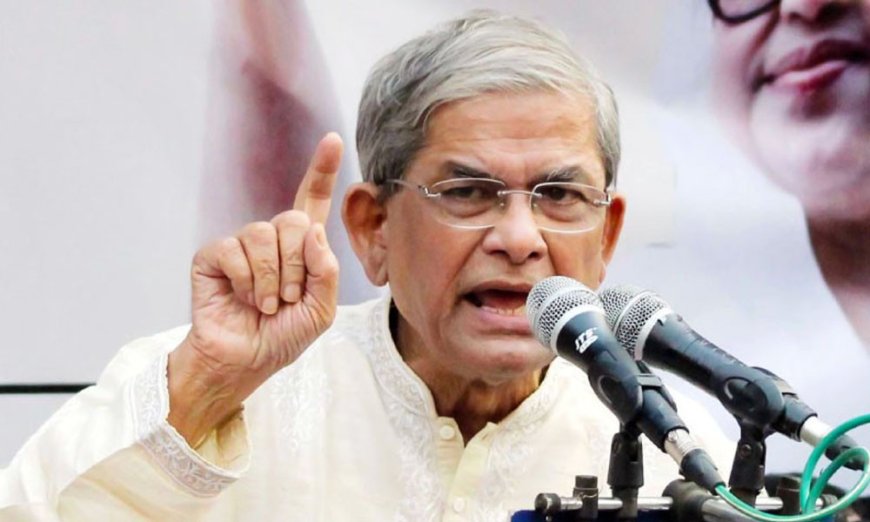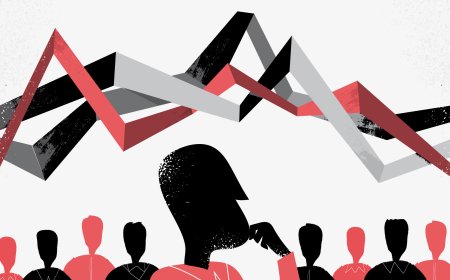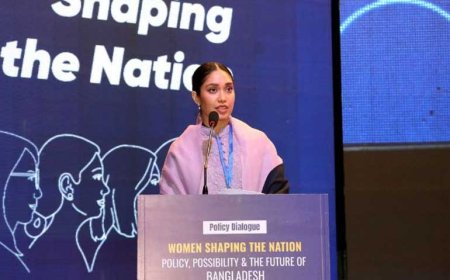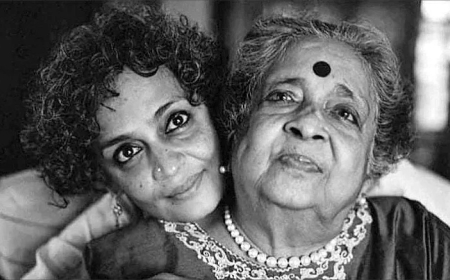The Far-Right Spectre and a Liberal Politician
Mirza Fakhrul raised an important and honest concern about the growing influence of extreme right-wing ideas. Instead of blaming him, we should be talking about it.

Mirza Fakhrul Islam Alamgir, the Secretary General of BNP, recently noted the rise of right-wing politics in an interview with the Prothom Alo. The interview has raised a lot of controversy, much of it misplaced.
Mr Alamgir is being bashed by some people for pointing out a simple fact that in Bangladesh, the rise of right wing politics is taking place and he is concerned about that. But the reasons for criticizing him are not at all clear.
As he pointed out in the next sentence of the interview, Mr Alamgir wants to see Bangladesh as a liberal democratic country. He has mentioned several times that his politics is liberal democracy. If one is on record as being a liberal democrat, then from an ideological perspective, shouldn’t one be worried about the rise of right-wing politics?
I too share his concern.
More importantly, in my opinion, is the fact that he mentioned it quite clearly that he is specifically concerned about the rise of a specific variant of right-wing politics, that has "openly declared that it doesn’t believe in democracy, wants to enforce their opinion over others and refuses to find a place for women at the societal level, let alone working for their political empowerment."
Is this not a legitimate concern?
Why should we ignore it and start blaming the messenger?
In the aftermath of an upheaval or a rupture in political order, rise of new types of politics and ideologies including the most extreme ones is quite common throughout history. Asef Bayat talked about it while describing right-wing populism in Europe and by paraphrasing Gramsci, mentioned how the decline of liberal democratic hegemony and neo-liberal confidence gave birth to the monsters: “There is an ideological crisis ... The old world is dying, and the new cannot be born, from which emerge monsters. And this kind of right wing populism we have these days is the monster.”
This is a common historical phenomenon and we are witnessing it right here, right now. And considering the political reality, is it surprising?
In Bangladesh, we never really practised liberal politics. The pseudo-liberals never really understood the concept of individual rights or freedom and as such, they gave liberalism a bad name.
In the aftermath of July Uprising, we have nothing on the liberal side, new forces are trying to find their place in the centre, and the right has got overcrowded. And within that crowded right side, far-right points of view are emerging.
Have we not seen that in the last 10-11 months? Isn’t that a legitimate concern? Shouldn’t all the political parties who want to practise liberal democracy talk about this? And if that is the case, what is the problem with Mr Alamgir’s statement?
Instead of bashing him, we should start an important conversation.
The first order business is to consider the threat, determine how serious that is and consider how we can address the rise of far-right thinking ideologically. We need to start a discussion on rights, liberty, freedom and the measures to protect those rights. We need to start having discussion about determining ways of dealing with the tyranny of the majority.
Perhaps we can ask Mr Alamgir what his party is doing or planning to do on that front and then evaluate the efficacy and related concerns (if any). But there is no justification in attacking him for raising a legitimate concern.
We should also start thinking about the second order business: finding a way to distinguish between right-wing or conservative views that are legitimate within democratic politics and their extreme variants that are not.
And we need to have a discussion about the role of the state (or set a boundary within which the state should function) in addressing these concerns so that the state machinery doesn’t overreach.
Mr Alamgir has done the nation a great service by pointing out an important concern and opening the channels through which critical questions can be raised.
Bashing him for this doesn’t make sense.
What's Your Reaction?

















































































